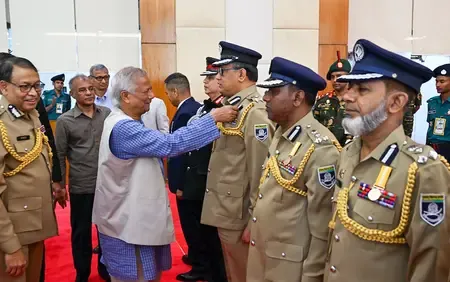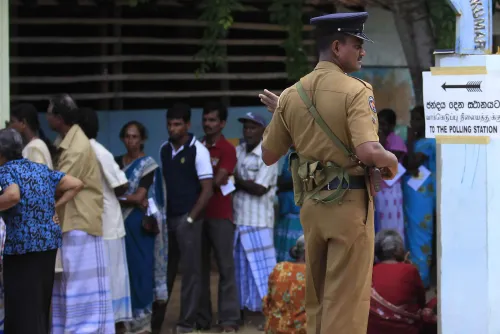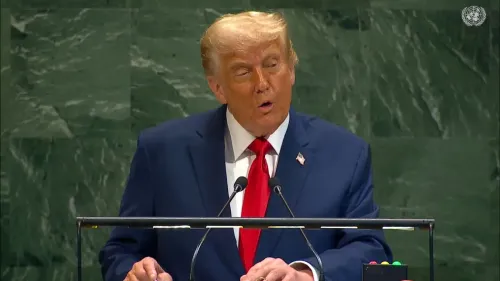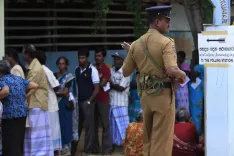Will BNP Triumph While Jamaat Attempts to Rig Elections?

Synopsis
Key Takeaways
- Muhammad Yunus assures free elections in February 2026.
- Concerns about Jamaat-e-Islami potentially rigging the election.
- BNP projected to win but skepticism remains about election integrity.
- Recent Dhaka University elections raise questions on transparency.
- Increasing ISI activities linked to terrorism in Bangladesh.
New Delhi, Sep 23 (NationPress) The chief advisor to Bangladesh's interim government, Muhammad Yunus, assured US special envoy on South Asia, Sergio Gor, that the elections scheduled for February 2026 will be free and fair. Yunus claimed that the nation is well-prepared for these elections.
Despite Yunus's reassurances, there is a palpable lack of optimism among Bangladesh's political landscape and its citizens regarding the integrity of the upcoming elections. According to reports from Indian intelligence agencies, there is a significant risk of widespread violence as political parties express uncertainty over the electoral process.
Indian officials have voiced concerns about the Jamaat-e-Islami, indicating that it might attempt to manipulate the elections. Opinion polls suggest that the BNP could emerge victorious if the Awami League is absent, but it may struggle to establish a government without Jamaat's support.
Furthermore, the ISI, which supports the Jamaat, seems inclined for it to be the leading party in any new government, raising questions about the fairness of the electoral process. The Jamaat's alliance with Yunus suggests they may attempt to influence the election results.
If Jamaat anticipates difficulties in rigging the elections, they might collaborate with the newly formed National Citizen Party to delay the elections and maintain the current regime. The National Citizen Party's backing for the Jamaat stems from its involvement in the July Movement that toppled Sheikh Hasina's government.
Public skepticism is further fueled by the recent Dhaka University elections, where the Jamaat's student wing, Islami Chhatra Shibir, won decisively. The BNP's student faction, Chhatra Dal, finished second but garnered significantly fewer votes, prompting questions about the fairness of those elections.
Observers note that while the BNP is projected to win if the elections are indeed fair, there are lingering doubts about the integrity of the process.
The ISI is reportedly encouraging the Jamaat to rig the elections and become the dominant partner in governance. Should this plan falter, Pakistan might prefer to rely on the existing establishment, with Yunus and Jamaat serving its interests while maintaining strained relations with India.
With Jamaat's support, Yunus has facilitated concessions for Pakistan, including opening sea routes and easing visa restrictions.
Intelligence Bureau sources indicate a surge in ISI activity within Bangladesh. ISI operatives are reportedly aiding terrorist groups like Jamaat-ul-Mujahideen Bangladesh and Harkat-ul-Jihadi Islami to establish bases near the Indian border. Additionally, the Islamic State poses a significant threat in Bangladesh, with various radical factions adopting its violent ideology.
The increasing collaboration between the ISI and Islamic State Khorasan Province further strengthens the terrorist presence in Bangladesh, contributing to a climate of uncertainty regarding the electoral process. Last week, BNP Standing Committee member Salahuddin Ahmed challenged the Jamaat, questioning why it would obstruct elections if it was confident of victory.









